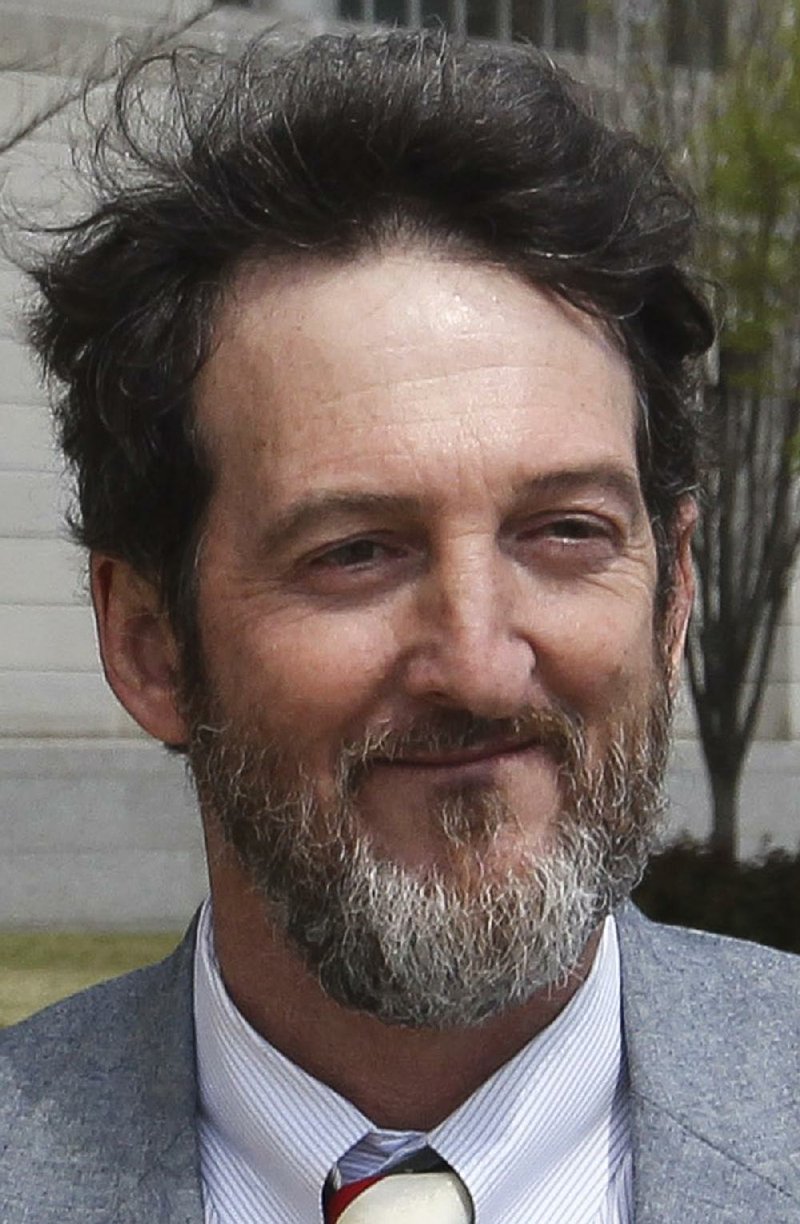A federal appeals court should overturn Michael Maggio’s bribery conviction because the law under which he was charged does not apply to his case, the ousted judge’s attorney contended in a brief released Tuesday by the 8th U.S. Circuit Court of Appeals in St. Louis.
In the alternative, attorney John Wesley Hall argued, the court should rule that Maggio’s 10-year prison sentence — which is above the federal guideline range of 51-63 months — was “unreasonable” and should be remanded to U.S. District Judge Brian Miller in Little Rock. Maggio, who is free pending appeal, also faces two years of supervised release.
Hall argued in the appeal brief that the government cannot prove a campaign contribution is a bribe, that Maggio “felt badgered” into the guilty plea by his original defense lawyers, and that Maggio denies committing a crime.
[Click here to read the appeal brief.]
The government also did not show that Maggio, a former judge in the 20th Judicial Circuit, was an agent of the state as required by the federal bribery statute under which he was charged, Hall wrote in the brief filed late Sunday.
In a plea agreement reached in January 2015, Maggio admitted lowering a Faulkner County jury’s $5.2 million judgment in a negligence lawsuit against a Greenbrier nursing home to $1 million in exchange for contributions to his campaign for the state appeals court. More than a year later and shortly before he was scheduled for sentencing, Maggio changed attorneys and sought unsuccessfully to withdraw his guilty plea.
Maggio’s plea agreement implicated two other people — a nursing home owner and a political fundraiser who were not identified by name. Fundraiser and lobbyist Gilbert Baker of Conway and nursing home owner Michael Morton of Fort Smith have denied wrongdoing but have said they believe that the government was referring to them in that agreement. They have not been charged with a crime — a fact Hall mentioned in a footnote.
“One would think that for a successful bribe to occur, there must be a briber and a bribee,” Hall wrote. “The briber and the middleman remain uncharged.”
Hall referred to the need for a quid pro quo — a favor in exchange for something in return — in bribery cases and wrote, “A campaign contribution is not per se a bribe. It is a necessary evil in democracies and where officials, including judges, are elected.”
Hall cited the U.S. Supreme Court’s recent decision overturning former Virginia Gov. Bob McDonnell’s federal corruption conviction. In that case, the court narrowed the definition of what sort of official act can serve as the basis of a corruption prosecution.
Maggio was charged with bribery under a federal statute that Hall suggested also has been interpreted too broadly on the issue of a connection between the crime and federal funds.
“Nothing in the information [charge against Maggio] alleges any nexus between the alleged bribe and the receipt of federal funds or any federal program by the” 20th Judicial Circuit, Hall wrote. “Yes, the [20th Judicial Circuit] received federal funds, presumably for juvenile or drug court. Maggio’s presiding over a civil wrongful death trial had nothing whatsoever to do with federal funds. Here, the alleged bribe was to influence the outcome of a wrongful death case as a quid pro quo for campaign contributions, something [Maggio] now vigorously disputes.”
Maggio “never saw anything in his court having to do with federal funds,” Hall added. “There is no nexus.”
Hall took issue with another federal appeals court’s ruling that the law requires no nexus between the bribe and the federal funds.
“Without a nexus, Maggio contends the statute is overbroad,” Hall wrote. “Maggio submits that nexus must be required to save the statute from unconstitutionality. Otherwise, we have overcriminalization and free ranging prosecution with no proof whatsoever of a federal interest.”
Referring to the campaign contributions at issue in the Maggio case, Hall said, “Yes, it looks bad because of the timing and who it came from, like McDonnell looked bad, but it just cannot be a crime based on these facts without nexus.”
Maggio’s decision to reduce the jury’s $5.2 million judgment “by all accounts … was perfectly and legally justified under the law,” Hall wrote.
As a result, Hall said, Maggio “pled guilty to something that isn’t even a federal crime.”
Morton has said he sent checks dated July 8, 2013, at Baker’s request, to 10 political action committees with the understanding that the money was intended for Maggio’s since-halted campaign. That same day, Maggio heard a request from Morton’s Greenbrier facility to lower or reject the jury’s judgment.
These and other checks arrived in a FedEx package at Baker’s home the next day. On July 10, 2013, Maggio reduced the judgment.
In a footnote, Hall said Maggio was under “No illusion here.”
“Maggio understands that prevailing on the bribery count could likely result in prosecution for some other potential offense such as wire or mail fraud. … Still, he contends there was no quid pro quo to convict him for that, either,” Hall wrote.
Attorneys Lauren Hoover and Marjorie Rogers represented Maggio until shortly before he sought to withdraw his guilty plea earlier this year. Conway attorney James Hensley Jr. succeeded them but asked that Hall be allowed to take over Maggio’s representation on appeal.
“Within two weeks of entering the plea … Maggio began having serious disagreements with defense counsel [Hoover and Rogers] about conduct of the case and his plea,” Hall wrote. “Maggio concluded that he committed no crime and he felt badgered into the guilty plea by his defense lawyers. But, he still attempted to go through with his cooperation.”
During a closed hearing Feb. 2, Maggio’s attorneys at the time asked to be relieved. Maggio “addressed the court and agreed that there was an impasse because the attorney-client relationship became acrimonious and coercive even before the plea,” Hall wrote, citing a transcript of that hearing.


